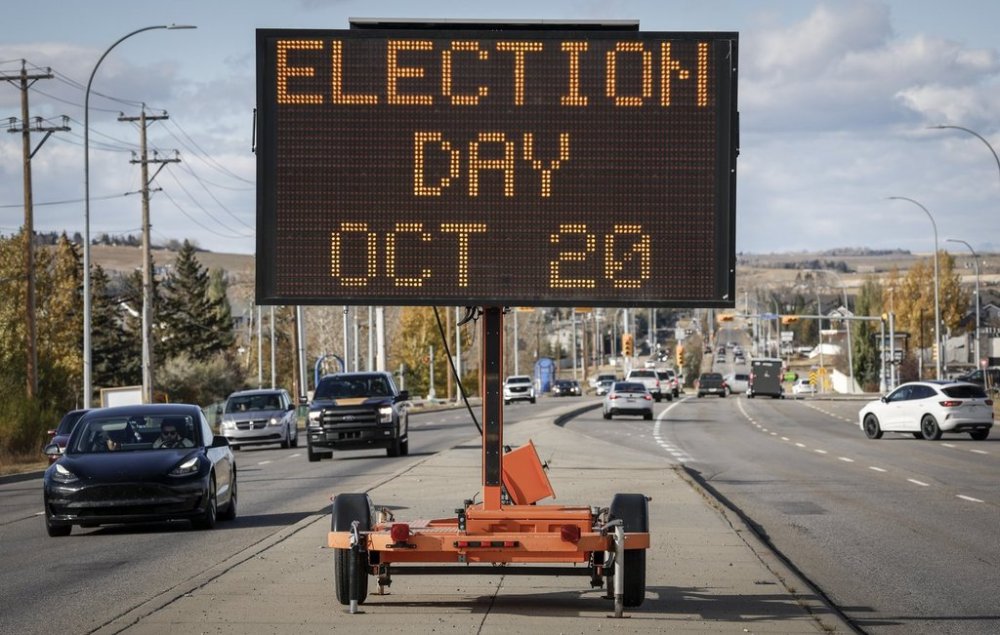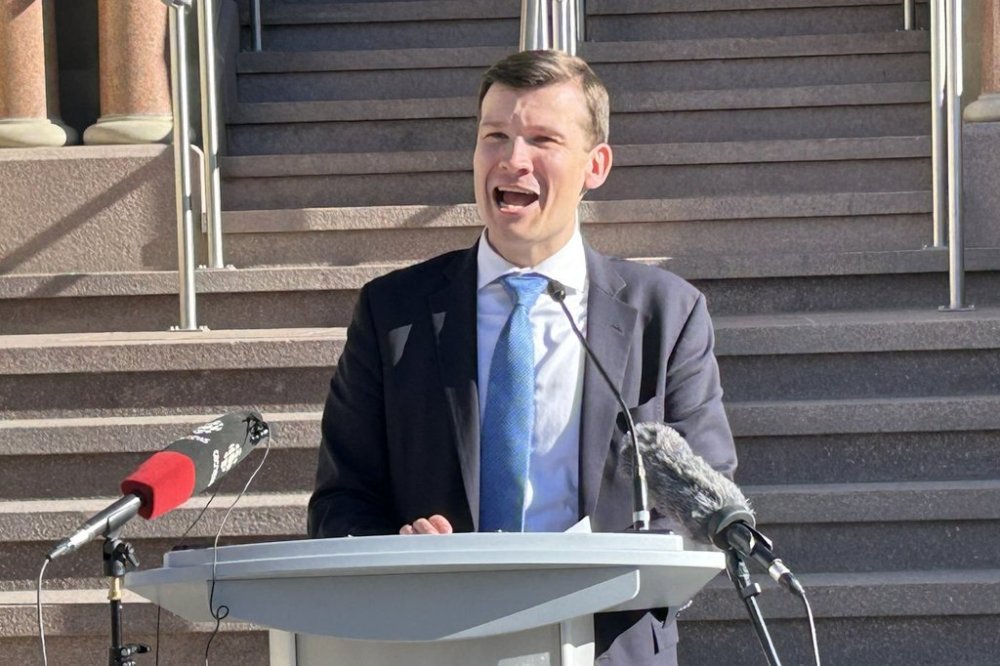Edmonton, Calgary welcome new mayors following municipal votes in Alberta
Advertisement
Read this article for free:
or
Already have an account? Log in here »
To continue reading, please subscribe:
Monthly Digital Subscription
$1 per week for 24 weeks*
- Enjoy unlimited reading on winnipegfreepress.com
- Read the E-Edition, our digital replica newspaper
- Access News Break, our award-winning app
- Play interactive puzzles
*Billed as $4.00 plus GST every four weeks. After 24 weeks, price increases to the regular rate of $19.95 plus GST every four weeks. Offer available to new and qualified returning subscribers only. Cancel any time.
Monthly Digital Subscription
$4.99/week*
- Enjoy unlimited reading on winnipegfreepress.com
- Read the E-Edition, our digital replica newspaper
- Access News Break, our award-winning app
- Play interactive puzzles
*Billed as $19.95 plus GST every four weeks. Cancel any time.
To continue reading, please subscribe:
Add Free Press access to your Brandon Sun subscription for only an additional
$1 for the first 4 weeks*
*Your next subscription payment will increase by $1.00 and you will be charged $16.99 plus GST for four weeks. After four weeks, your payment will increase to $23.99 plus GST every four weeks.
Read unlimited articles for free today:
or
Already have an account? Log in here »
CALGARY – Calgary’s new mayor says he has been given a mandate to work with – and challenge if necessary – the provincial and federal governments.
Jeromy Farkas says because he ran as an Independent rather than on a party slate, he has more room to manoeuvre.
“That allows me that latitude to actually look at the evidence, look at the issue to determine how to approach that,” Farkas told reporters Tuesday, the day after provincewide municipal elections.

“My job as mayor is to report to Calgarians exclusively.
“That’s really the message that I have in terms of working collaboratively with both a Liberal prime minister and a conservative premier.”
Farkas, a former city councillor, defeated challenger Sonya Sharp and incumbent Mayor Jyoti Gondek in municipal voting.
Unofficial results showed Farkas, with just over 91,000 votes, defeating Sharp by fewer than 600 votes.
Sharp, in a statement, requested a recount as per the rules of the Local Authorities Elections Act.
“Given the margin of victory for Mr. Farkas is only 585 votes or 0.16 per cent, I believe it is appropriate to request the chief returning officer undertake a recount of the ballots to ensure the accuracy of the election outcome,” said Sharp, who added she won’t speak to media until after the recount.
Few results were available after polls closed Monday night, as rule changes made by Premier Danielle Smith’s government require votes be counted by hand rather than with machines. It’s a move designed by the province to preserve electoral integrity.
In Edmonton, with official results still looming, mayoral candidate Tim Cartmell conceded in a letter sent out Tuesday afternoon, congratulating Andrew Knack, who led him by more than 13,000 votes.
While Knack leads the race, a winner has not yet been declared.
Knack told reporters he’ll work with the province to find common ground and establish what residents need.
“We won’t agree on everything and that’s OK,” Knack said.
Cartmell, like Sharp, ran as leader of a political party — another change brought to municipal politics by Smith’s government for this election cycle, though only on a pilot basis in Alberta’s two major cities. Knack ran as an Independent.
The current mayor, Amarjeet Sohi, decided not to run again.
Municipal Affairs Minister Dan Williams, in an interview, said the party pilot project in the two big cities was a success and will continue, but will not be expanded to other jurisdictions.
“I think that it’s a success in that for those who are elected under political party, it’ll provide accountability in terms of what they ran for and exactly what can be expected of them by their voters,” he said.

“And I’m excited to see what happens as you play this out in multiple cycles.”
He added that in other jurisdictions, it’s taken more than one election cycle for municipal political parties to “set in.”
Political scientist Lisa Young said Knack was seen as the more progressive candidate among the two front-runners in Edmonton, and in Calgary, Farkas positioned himself as a centrist who was willing to criticize Smith’s government.
Young, with the University of Calgary, said political parties might play out differently a second time around, but in those two mayoral races, the affiliations did little to simplify the choice for voters.
“I don’t think that the provincial government got their desired outcome in either city,” she said.
Williams also said the province will help as needed to rectify problems at the voting booth.
Along with the manual ballot counting, city election staff had to grapple with a provincially mandated registration form added to the voting process. Some stations across the province were plagued with long lineups and waits over an hour.
Williams said the cities had over a year in advance to prepare for changes.
“I’ll say that the vast majority of municipalities, and even in Edmonton and Calgary, in different ways, have done their best,” he said.
“I’m sure that they’ll be able to manage counting, and if they need help with it, I’m happy to work with them.”
This report by The Canadian Press was first published Oct. 21, 2025.
— With files from Jack Farrell, Lisa Johnson and Aaron Sousa in Edmonton

